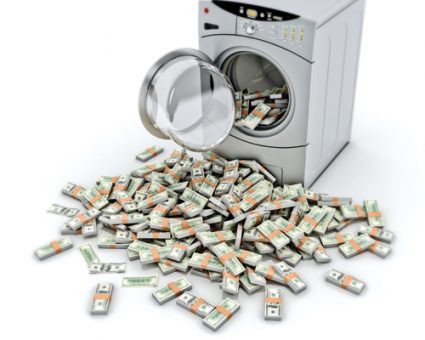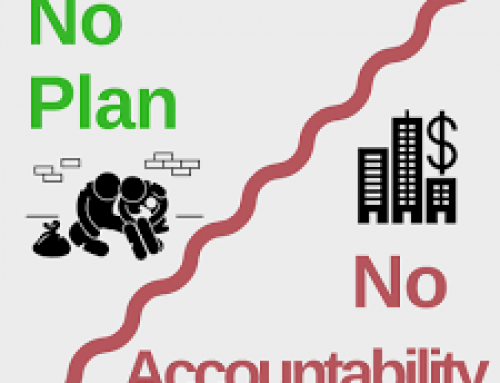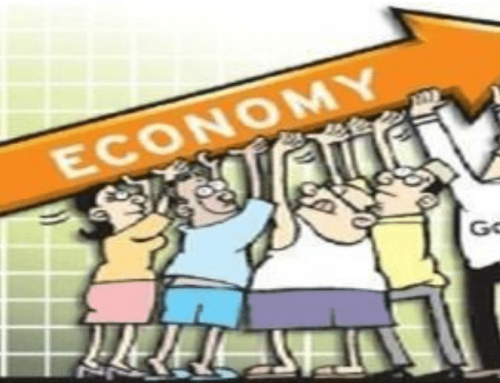May 16, 2016
By: Bobby Casey, Managing Director GWP
 Of all the things to resent about former President Richard Nixon, tax evasion is not one of them for me. I know that’s not a very popular opinion, and while I in no way suggest you evade taxes, I personally don’t see it as a crime. For me to see something as a crime, I need to know who the victim was, or what the damages were. Otherwise, it’s just someone being disobedient.
Of all the things to resent about former President Richard Nixon, tax evasion is not one of them for me. I know that’s not a very popular opinion, and while I in no way suggest you evade taxes, I personally don’t see it as a crime. For me to see something as a crime, I need to know who the victim was, or what the damages were. Otherwise, it’s just someone being disobedient.
The American people didn’t suffer because Nixon didn’t pay his taxes. The American people suffered because he put the final nail in the coffin of our gold standard. So if you want to be pissed at Nixon, start there. Of course, that’s the one real CRIME he was never prosecuted for.
I share this because there are other victimless crimes that have recently made the spotlight. A trigger goes off in many people when you declare something is criminal. They don’t really question who the injured party is, they only accept wholesale that the person doing it is bad.
Money laundering is considered a criminal act… well at least when private citizens do it.
“Money laundering is the generic term used to describe the process by which criminals disguise the original ownership and control of the proceeds of criminal conduct by making such proceeds appear to have derived from a legitimate source.”
Does this sound familiar? Hint: We have a full money laundering scheme in place that is argued to be essential for a civilized society. The IRS steals money from the taxpayers, flushes it through the government, and spends it on whatever it pleases. When people who received government subsidies speak of where the money came from, they say the government or the respective agency. They never say you or me. They never say the IRS. The true source of the money is hidden.
Don’t believe me? Ask a government employee where their paychecks and benefits come from. Better still, watch who takes the credit for the social programs? Do taxpayers get a pat on the back or even a hat tip about popular social programs? Nope. Politicians do.
The same can be said of Ponzi Schemes. Bernie Madoff is doing time for it… but our Department of Social Security isn’t going anywhere, is it?
Money laundering is being positioned as a crime to instill fear into the hearts of the citizenry for the sole purpose of legitimizing and justifying capital controls. Read that again, or as many times as it takes until it sinks in.
There’s no actual victims in hiding the source of income. In the case of taxation, we aren’t victims of money laundering. We are victims of theft. Rather than looking at money laundering as “hiding” anything, perhaps it would make more sense to say “preserving the privacy and anonymity” of a transaction.
Is confidentiality criminal? We have agreements with our doctors, lawyers, religious leaders, and even online service providers for privacy and confidentiality and the only ones to resent it is the government. The Edward Snowden revelations taught us the vitality of that privacy as well as the criminal nature of the government invading it. Besides, whose business is it that one private entity engages in consensual commerce with another? Yours? Mine?
The argument has been and remains that money laundering covers up the actual criminal activity. That’s the argument FOR Sweden going cashless. That’s the argument FOR Louisiana denying certain cash transactions. That’s the argument AGAINST bitcoin. This is the argument FOR asset forfeiture. It’s so easy to conceal the source of funds! What does this mean for the government? They can’t tax or control that which they don’t know exists.
That’s why you register large ticket items like cars and boats, real estate and gold. They can’t tax it, control it, and know who to hunt down if you don’t register it.
Money laundering can be used to conceal such things as theft and mercenary work. But more often than not, it’s used to conceal the sale of guns and drugs or the proceeds of “illegal” gambling. Theft and murder for hire absolutely have victims. But those things are already illegal and have penalties. Money laundering doesn’t have victims. Nor does selling drugs and guns. They only have willing participants. Same goes for gambling.
Again, this isn’t me pitching the idea of money laundering or the smuggling of illicit goods. But look at the resources governments around the world pour into controlling our behaviors… especially our monetary and fiscal behaviors… and the lengths to which they will go to get compliance. Rather than focusing on the legality of something, it’s time we started focusing on the morality of the law and its intentions in the first place.
I say all this because of the needless hoops the US government jumps through to control commerce, banking and capital. A couple weeks ago, the US Treasury blacklisted a money laundering syndicate consisting of 68 different companies, one of which was Balboa Bank & Trust out of Panama.
The suspected perpetrators, Nidal Waked Hatum and Abdul Waked Fares, “allegedly helped multiple drug trafficking groups hide the source of their illicit gains through various companies by using trade-based schemes like fake invoices, bulk cash smuggling, and a range of companies from real estate to retail, such as a luxury mall in downtown Panama City, the La Riviera chain of duty-free stores, and two Panamanian newspapers: La Estrella and El Siglo.” (Source: Reuters)
By targeting these 68 companies, The US Treasury Department freezes any assets those companies may have in the US as well as prohibits US firms and people from any dealings with them.
You can be as critical as you wish about drugs and money laundering, but you can’t find a single victim in it. The irony is, there ARE victims in the drug war and persecution of suspected money launderers. Innocent victims, I might add. Balboa Bank has $44.1 million in capital and 172 employees. Not only did those assets get frozen so they are no longer in circulation, and not only are the employees of the bank under scrutiny, but everyone who has, does, or wants to associate with this bank is stigmatized or stymied as well.
Never mind the people who worked for the real estate firms, the retail outlets and the mall, the duty-free shops, and the newspapers! Who knew money laundering could actually STIMULATE the economy?! This is what is often called a “moral hazard”. The laws might start off with some feigned good intention, but more damage is done than what was ever going to be prevented.
And all this for what? A drug war and capital controls?
This is no different than the Panama Papers. Tying a stigma of evil or criminality to offshore accounts has people in a snit over what OTHERS are doing to protect their assets from litigious people and governments. This smear campaign against people who wish to engage in commerce, protect their privacy, and shelter their assets is not only unwarranted, but it’s illogical and irrational. Worse still, it is pushing the idea of presumption of GUILT over the presumption of INNOCENCE. People are adopting this.
Remember the story we did on Shadow Markets? People are going to buy and sell what people are willing to buy and sell, whether it’s to make large gobs of money or just eke out a living. An honest living means you earn your way without force or violence. The ability to earn is a basic human right, which should have NO restrictions or contingencies, much less be subject to government interference.
Don’t let anyone shame you for earning. Don’t let anyone shame you for protecting your assets and privacy. Offshore accounts are NOT inherently criminal. They are perfectly legal. And if you have any questions regarding the structures we offer or the integrity of the institutions we work with, I’d be only too happy to discuss it and disclose whatever information you need to put your mind at rest.
Click here to schedule a consultation.




